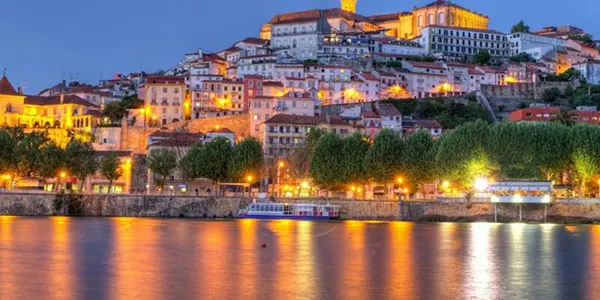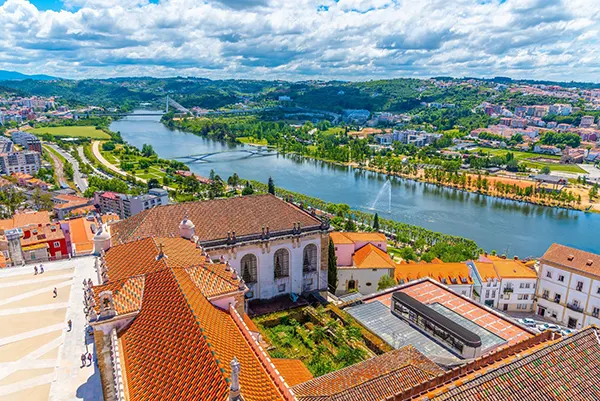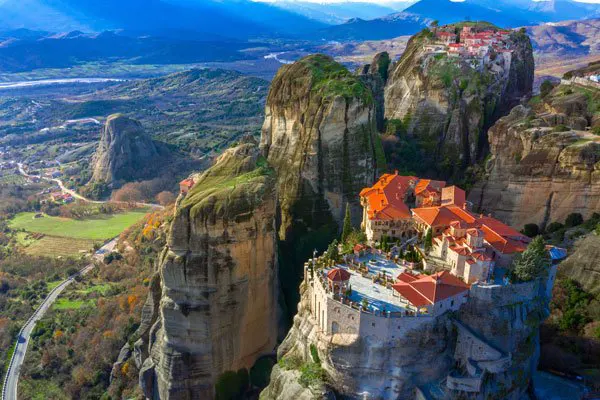
Coimbra, Portugal — A Student City Shaped by Centuries of Academic Tradition
Coimbra stands as one of Portugal’s most influential cultural and educational centres, known primarily for its university, which dates back to 1290 and remains among the oldest active institutions in Europe. The city’s character is defined by its student life, historic architecture, and a distinctive academic atmosphere that blends tradition with modern routine. In 2025, Coimbra continues to attract visitors who value authentic culture, historical depth, and a rhythm shaped by generations of scholars.
The Historic Heart of Portuguese Academia
The University of Coimbra sits atop a hill overlooking the city, forming a landmark that symbolises more than seven centuries of continuous learning. The institution’s monumental buildings — including the Joanina Library, the Royal Palace, and the Chapel of São Miguel — illustrate the layers of architectural transformation that accompanied Portugal’s political and cultural shifts. Each structure reflects the city’s ability to preserve its scholarly identity while adapting to new educational needs.
Walking through the campus reveals a living archive of Portuguese heritage. The Joanina Library, home to thousands of rare manuscripts, continues to operate as a functioning academic resource while also serving as a national cultural reference point. Student rituals, such as traditional academic attire and seasonal ceremonies, add depth to this environment, maintaining customs that have endured through centuries.
In 2025, the university remains central to the city’s demographic and cultural rhythm. Its faculties and research institutes attract students from across Europe, Latin America, and the Lusophone world, strengthening Coimbra’s international reputation. The close connection between academic life and urban life remains one of the city’s most defining characteristics.
Life Around the University Hill
The neighbourhoods surrounding the university — particularly Alta and Sofia — host a mix of residential houses, student associations, libraries, and cafés that have served generations of scholars. These areas maintain an atmosphere shaped by academic routine, with narrow streets that link study spaces, historic buildings, and local meeting points used by students.
Student associations known as “Repúblicas” continue to play an essential role in Coimbra’s cultural fabric. These communal houses, some of which have histories extending several centuries, bring together students from different backgrounds. Their contribution to the city includes artistic events, debates, and collective projects that preserve traditions while introducing contemporary perspectives.
The everyday pace is defined by academic calendars, public celebrations, and university ceremonies that bring residents, visitors, and students together. Throughout the year, these districts illustrate the continuity of Coimbra’s identity as a city where learning influences social life as deeply as architecture or history.
Cultural Identity Rooted in Knowledge
Coimbra’s cultural landscape extends beyond its university, though education remains central to its identity. Museums such as the Science Museum, Machado de Castro National Museum, and the Botanical Garden offer insights into scientific progress, art history, and environmental heritage. Each institution contributes to the city’s academic narrative while providing accessible spaces for visitors.
Music also plays a distinctive role. Coimbra Fado, recognised for its emotional depth and performed traditionally by male students, sets the city apart from Lisbon and Porto. This musical form emphasises poetry, nostalgia, and the student experience, reflecting themes that have persisted through generations of performers.
The city’s theatres, libraries, and research centres collaborate regularly with the university, ensuring that cultural projects are grounded in academic expertise. This connection strengthens Coimbra’s reputation as a city where artistic expression and scholarly work exist in close dialogue, providing residents with diverse and meaningful cultural opportunities.
Public Spaces and Cultural Traditions
The Mondego Riverfront serves as a modern social hub, offering recreational areas where students and residents gather. The space has been renovated over recent years to include walking paths, performance areas, and cafés that overlook the river. This environment contrasts with the historic districts, presenting a contemporary aspect of the city’s lifestyle.
Annual traditions such as Queima das Fitas continue to mark major transitions in student life. These ceremonies, rich in symbolism and guided by long-established customs, highlight the importance of academic identity within the community. While deeply rooted in history, they have adapted to reflect current social values and safety standards.
Public events, festivals, and research exhibitions encourage interaction between the university and wider society. These activities demonstrate Coimbra’s ongoing commitment to combining academic excellence with civic participation, keeping the city’s cultural evolution connected to its educational origins.

A City Shaped by Students and Heritage
Coimbra’s urban form reflects centuries of development influenced by its academic population. The upper town preserves medieval streets and historic facades, while the lower town incorporates modern infrastructure that supports commerce, public services, and student housing. This combination of old and new allows visitors to experience a city that respects its past while supporting contemporary needs.
In 2025, the city continues to improve accessibility, sustainability, and public transport, ensuring smoother mobility across districts. These developments support both long-term residents and the large number of students who arrive each year. Local administration works closely with the university to balance heritage preservation with the demands of academic life.
Coimbra’s appeal lies in its authenticity. It is not a city built around tourism, yet its rich history attracts travellers seeking genuine cultural experiences. Its atmosphere is shaped by knowledge, tradition, and a rhythm unique to a city where academic life has guided daily life for centuries.
The Modern Student Experience
The student population remains the driving force of the city’s vibrancy. Modern libraries, research centres, and sports facilities support academic development while contributing to the overall quality of life. Students benefit from a network of services that combine historical prestige with contemporary academic standards.
Accommodation options include traditional Repúblicas, university residences, and private housing, each offering different perspectives on the student experience. These environments promote interaction, collective projects, and long-term friendships, shaping a sense of community that extends far beyond graduation.
Coimbra’s student experience today reflects a balance between heritage and modernity. While the city proudly preserves the traditions that shaped its identity, it continues to adapt to new educational models, technological progress, and international academic collaboration, ensuring its relevance in the global academic landscape.
Popular articles
-
 Meteora, Greece: Monasteries, Dress Code and a One-Day Route
Meteora, Greece: Monasteries, Dress Code and a One-Day RouteMeteora is one of the most extraordinary cultural landscapes in …
-
 Valley of the Kings (Luxor): Which Tombs to Choose and How Tickets Wor...
Valley of the Kings (Luxor): Which Tombs to Choose and How Tickets Wor...The Valley of the Kings is not a place you …
-
 Himeji Castle (Japan): the country’s best-preserved samurai fortress
Himeji Castle (Japan): the country’s best-preserved samurai fortressHimeji Castle, known as Himeji-jō, is the rare Japanese stronghold …
